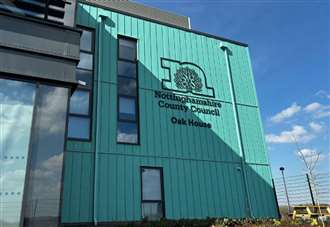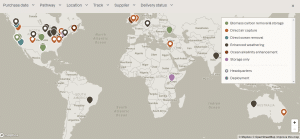URGENT UPDATE: Nottinghamshire County Council has confirmed a critical need for an additional £53 million to expand supported living accommodation for young adults with learning disabilities. This urgent financial requirement comes as the council projects a demand for over 500 new accommodation units within the next five years.
The latest decision document reveals that 523 additional units are necessary to meet the growing needs of working-age adults requiring supportive living arrangements. As of now, the council has identified 83 units through partnerships with developers, set to be available between Spring 2025 and Early 2027-28.
The financial implications are significant; if the council secures these units, it could result in an increase of approximately £53 million on top of the £84.4 million already spent on similar accommodations in the 2024-25 financial year. This existing budget reflects an £8.5 million overspend, raising questions about how the council will fund this additional expenditure.
In response to inquiries about covering the new costs, council officials stated they would redirect funds from other services or incorporate the spending into new budgetary demands. However, no detailed breakdown was provided, prompting further scrutiny.
The council’s adult social care department emphasized that the additional funds are expected to come from existing care budgets. “We are using the normal development procurement routes to procure this accommodation,” they stated.
The motivation behind this expansion is clear: supported living is considerably less expensive than residential care. The average weekly cost of residential care for individuals with learning disabilities in Nottinghamshire is £1,968, while supported living costs range from £616 to £1,560 per week. Notably, each transition from residential care to supported living is projected to save the authority an average of £540 per week.
Barry Answer, cabinet member for adult social care, expressed the council’s commitment to providing quality care. “We’re focused on making sure people get the right care in the right place — and that it’s good value for money too,” he said. “This means people can live more independently, with their own front door, and get the care they need. It’s also more affordable than traditional residential care.”
In recent years, the demand for adult social care services has surged, leading to a 36% increase in net spending on learning disability services across Nottinghamshire from 2019 to 2024. Last year alone, the council reported a £20.5 million overspend in the Adult Social Care portfolio, primarily due to an unfunded increase in the National Living Wage.
Looking ahead, a new framework is set to launch in Autumn 2025, allowing the council to establish a list of approved housing providers. This initiative will enable these providers to bid for the accommodation needed, with properties expected to be ready within 12 to 30 months.
As Nottinghamshire County Council navigates these financial challenges, the impact on young adults with learning disabilities remains paramount. The urgency of securing these accommodations emphasizes the need for immediate action in response to rising demands for social care services.
Stay tuned for updates as this situation develops.






























































